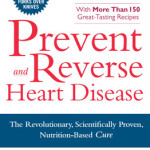 In the past there has been a significant gender bias toward women when doctors evaluated people for heart disease and heart attack. In the past many of the research studies were performed on men, which left information about women out of reach of treating physicians. And often, doctors and patients believe that chest pain in women isn’t from cardiac causes which leads to misinterpretation of their condition.
In the past there has been a significant gender bias toward women when doctors evaluated people for heart disease and heart attack. In the past many of the research studies were performed on men, which left information about women out of reach of treating physicians. And often, doctors and patients believe that chest pain in women isn’t from cardiac causes which leads to misinterpretation of their condition.
The differences in how men and women respond to symptoms of heart disease also include the reasons why people delay treatment. Women may tend to avoid or delay medical care because of denial or not being aware that the symptoms they are feeling are symptoms of a heart attack.
Women also tend to have heart attacks later in life than men so there are other medical conditions that can either mask a heart attack or be contributing factors, such as arthritis, osteoporosis and diabetes. Because most of the previous research was done on men some of the diagnostic testing and procedures may not be as accurate on women as they are on men. Some doctors may choose to avoid using these procedures which delays the diagnosis of a disease process which can result in heart attack or stroke.
For example, the exercise stress test may be less accurate in women giving a false positive result. But women more commonly have a single-vessel disease process and this isn’t picked up in an exercise stress test.
The differences in heart disease between men and women have implications for diagnosis and treatment for women. Education has been changing in the past years for both physicians and patients. This has been improving the treatment of women with heart disease and their outcomes.
References:
(1) Nursing Research Editor: Symptom Clusters in Acute Myocardial Infarction
http://www.nursing-research-editor.com/authors/OMR/21/OMRManuscript.pdf
Resources:
Beth Israel Deaconess Medical Hospital: Heart Disease
Centers for Disease Control and Prevention: Prevalence of Coronary Heart disease
http://www.cdc.gov/mmwr/preview/mmwrhtml/mm6040a1.htm
Center for Disease Control and Prevention: Women and Heart Disease Fact Sheet
http://www.cdc.gov/dhdsp/data_statistics/fact_sheets/fs_women_heart.htm
MayoClinic: Heart Disease
http://www.mayoclinic.com/health/heart-disease/HB00040



Leave a Reply